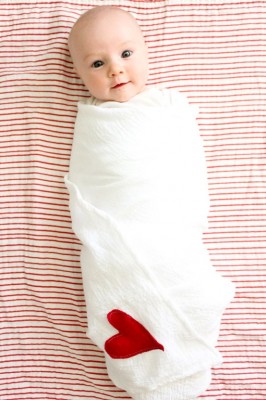A primary goal successful retailers have is to find products customers want, then make it easy for customers to get those products, peferably easier than their competitors do. It’s the fulfillment of this goal that helped to make WalMart the retail giant that it became. Another way retailers distinguish themselves from the crowd is to offer rare products, items that are hard to find. Even more, to distinguish themselves from other store owners, some retailers offer products at prices that are lower than prices offered by their competitors. Yet, this isn’t always easy to achieve. It’s a reason some retailers depend on companies that sell discount products like wholesale baby items.

The costs of wholesale baby items begins long before the products land on store shelves. To begin, wholesalers develop relationships with manufacturers, people who actually make baby products. If wholesalers develop relationships with manufacturers who consistently create quality products and then wholesalers make these products available to retailers, wholesalers become dependable in the eyes of retailers, causing retailers to seek them out.
But, again, to be successful, wholesalers have to go beyond selling low priced products, they also have to sell quality products that have proven to be dependable. Signs that products like wholesale baby items are dependable include:
· Colors in clothing don’t streak after clothes are washed
· Garments sold with wholesale baby items don’t irritate a child’s skin
· Cloth doesn’t shrink after washed, making it possible for babies to wear bibs, outer garments like coats and jackets for extended periods of time
· Toys don’t break when infants shake or rattle them against furniture
· Pages of children’s books don’t fall out even as children explore the books
Wholesale Baby Items Area Retailers Can Buy and Sell
The kinds of baby items wholesalers distribute to retail stores vary. For example, besides outerwear like coats and jackets, other types of wholesale baby items retailers could purchase from wholesalers include:
· Baby photo albums (some albums are for girls, others for boys)
· Bath items (i.e. baby lotion, shampoo, wipes, powder)
· Hooded baby bathrobes and slipper sets
· Hooded towels, including Winnie the Pooh hooded
bath towels)
· Socks or booties
· Diaper bags
· Fashion wear (i.e. tee-shirts, diaper covers,
dresses, legging sets)
· Toys (i.e. rattlers, stuffed animals)
Some wholesalers offer discounts to retailers who purchase from them directly online. Other wholesalers allow individual consumers to purchase products from them directly, again at reduced prices. For example, associations, employers and community organizations can buy bulk wholesale baby items from wholesalers. If there were no wholesale baby items on the market, parents might find themselves paying hundreds of dollars to buy enough baby products to last their babies a month or longer. Retailers who value community, the relationships they have with their first time and repeat customers, know how tough it can be for parents to buy products like bibs, clothes, books, blankets and pillows for their newborns while meeting their household expenses, especially when the economy is weak. When retailers buy products from wholesalers then pass the savings onto their customers, it could help strengthen the economy and empower families financially.
Rhonda Campbell is an author who contributed this article.

 If a new baby is on the way and you’ve begun decorating the nursery and clearing away clutter in the rest of your house, chances are you are working on enhancing your home in other ways as well. There are furniture pieces you can’t do without, such as purchasing a new crib unless this is your second child and implementing calming elements, like tropical fish tanks. All of these elements combined will not only enhance the appearance of your home, but will create a tranquil environment for when the new baby arrives.
If a new baby is on the way and you’ve begun decorating the nursery and clearing away clutter in the rest of your house, chances are you are working on enhancing your home in other ways as well. There are furniture pieces you can’t do without, such as purchasing a new crib unless this is your second child and implementing calming elements, like tropical fish tanks. All of these elements combined will not only enhance the appearance of your home, but will create a tranquil environment for when the new baby arrives.
